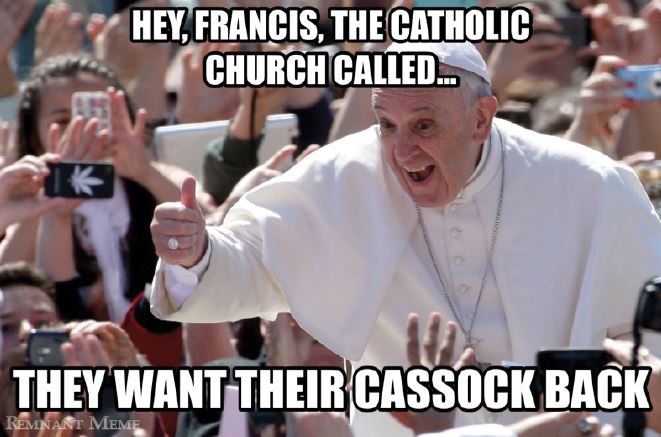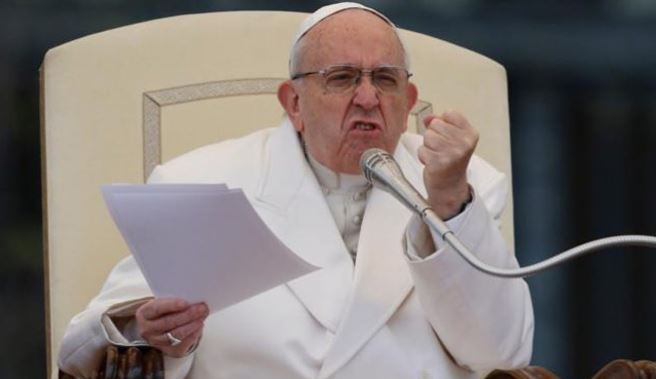Christopher A. Ferrara
Some Surprising Answers...
I never thought I’d see the day when a preening, Internet-created neo-Catholic doyenne such as Simcha Fisher, as notorious as Mark Shea for her crude and often unprintable invective against traditionalists, would unload on Pope Bergoglio with the following headline: “Does Francis know he sounds like an abuser?”
Fisher is rightly incensed by Bergoglio’s cunning response, “I will not say a single word on this,” concerning Archbishop Viganò’s damning indictment of Bergoglio’s rehabilitation of the monster once known as Cardinal McCarrick for some five years before adverse worldwide press coverage forced to him to punish that serial homosexual rapist of whose crimes Viganò had personally informed him back in 2013—information of which Bergoglio was clearly already aware at that time, as Viganò testifies.
Leave the homosexual clerics in place. Fear the young neo-traditionalists. Stop the restoration...
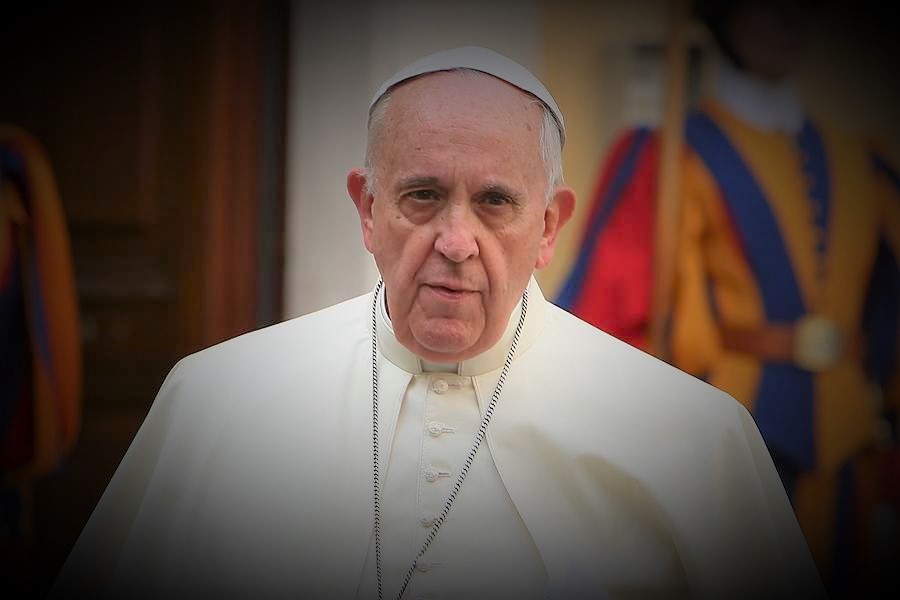 Francis the Silent... for once.
Francis the Silent... for once.
Introduction
This article was first written to address the neo-Catholic commentator Massimo Faggioli’s attempt, following the Pennsylvania grand jury report and the fall of ex-Cardinal Theodore McCarrick, to minimize the homosexual crisis in the Church and blunt the correlative rise of what he derides as “neo-traditionalism.” As my piece was about to go to press, however, EWTN’s National Catholic Register broke the explosive story on the written testimony of Archbishop Carlo Maria Viganò, former apostolic nuncio to the United States (2011 to 2016). Faggioli’s propaganda piece now becomes merely illustrative of the points to be made here in light of this astonishing and indeed providential development.
In his eleven-page account, affirmed under oath, the Archbishop, marking a turning point in Church history, declares that senior Vatican officials, including former Secretaries of State Angelo Sodano and Tarcisio Bertone as well as Cardinal Óscar Andrés Rodríguez Maradiaga, coordinator of Pope Bergoglio’s “Council of Cardinals”, covered up McCarrick’s decades of sexual predation and that Bergoglio himself continued the coverup.
The Revolutionary Fellowship of Pope Montini,
Jacques Maritain and Saul Alinsky
This article, adapted from a presentation given at the 2018 symposium of the Roman Forum at Lake Garda, examines the origin of the current unparalleled crisis in the Church at its origin: the neo-Modernist uprising during the Interwar Period, culminating in that catastrophe known as the “opening to the world” at Vatican II.
The conciliar “opening to the world” was assisted mightily by two deluded “conservative” visionaries whose roles were absolutely decisive: Jacques Maritain and his disciple Pope Montini, whose relationship and mutual connection to none other than Saul Alinksy are the focus of this piece.
While Francis orders the Catechism of John Paul II “revised” to pretend that his errant personal view of the death penalty is Church teaching, the Catechism’s original error concerning the homosexual condition remains on its website.
UPDATED (See below)
Following the hasty publication of an English version of the Catechism of John Paul II in 1994, before the official Latin text was ready in 1997, the Vatican was forced to make numerous changes to the English text after the Latin text was promulgated. This resulted in a “second edition” of the Catechism in English and other languages, with the English second edition appearing in 1997.
The Latest Addition to the Bergoglian Pseudo-Magisterium...

For the past five years the Church has suffered under a Pope who actually believes that the Magisterium is literally whatever he thinks. To quote his own admission in this regard, made during one of his infamous interviews: “I’m constantly making statements, giving homilies. That’s magisterium. That’s what I think, not what the media say that I think. Check it out; it’s very clear.”
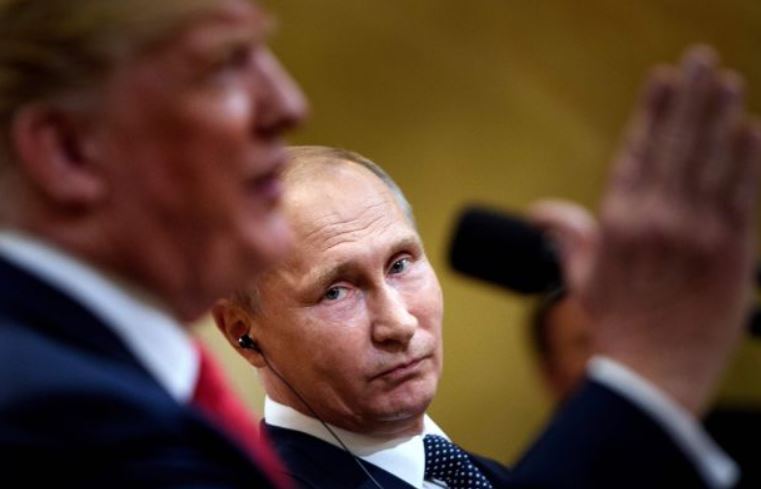
The increasing exposure of a Deep State conspiracy to cover up the crimes of Hillary Clinton and undermine the candidacy and then the presidency of Donald Trump with concocted allegations of the non-crime of “collusion with Russia” has produced a state of delirium in the Deep State-DNC-Media complex (DDM). The behavior of the DDM’s operatives is suggestive of something like a vampire’s exposure to sunlight.
What should we think of the nomination of Brett Kavanaugh to the United States Supreme Court (SCOTUS)? My view is that we should be just short of jubilant. His judicial record on the United States Court of Appeals for the DC Circuit makes it clear that he will be rock solid on religious liberty for Catholics and Second Amendment liberty for gun owners. As for Roe v. Wade, his statement during his prior confirmation hearing to the effect that he would be bound by it as a Circuit judge—he could hardly overrule it from that bench—is no indication that, as an Associate Justice of SCOTUS, he would not vote to cut back the infamous decision in ways that would amount to an abrogation if not an outright overruling.
On April 22, 2018, Good Shepherd Sunday, fifteen priests from around the world published an open letter entitled “A Pastoral Appeal to the Bishops for an Apostolic Reaffirmation of the Gospel.” Among the signatories is EWTN commentator Father Gerald Murray, a doctor of canon law, whose appearances on EWTN with “the Papal Posse” (along with Raymond Arroyo and Robert Royal) have been instrumental in alerting the Church at large to the dimensions of the growing catastrophe of this pontificate.
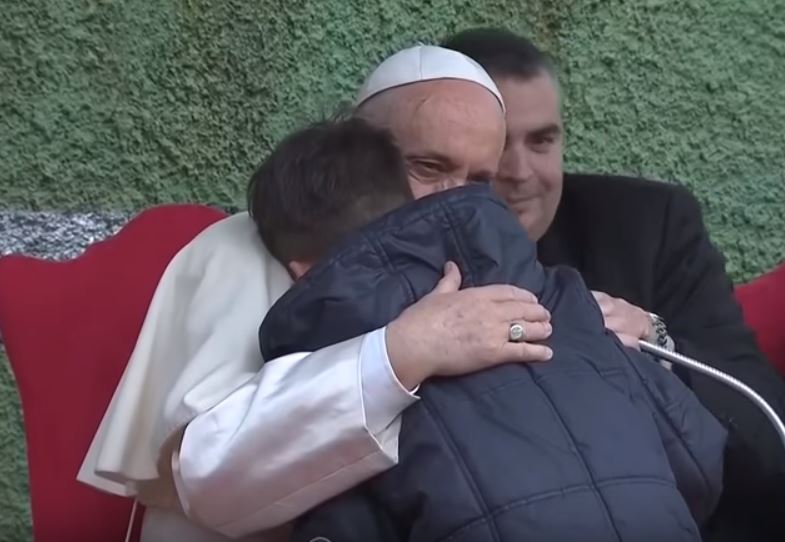
Editor’s Note: Another issue of The Remnant brings you yet another diagnosis of what Pope Bergoglio has done this week to undermine the Faith. To readers who may wonder why we ought to continue this exercise we would answer: We have no choice in the matter. The current occupant of the Chair of Peter is mounting a determined assault an every aspect of Catholic teaching and practice he finds disagreeable, including the teaching of his own immediate predecessors on fundamental moral questions. In short, we have a Pope who is literally attacking the Church.
It would be a dereliction of duty not to express our continuing opposition to the radically Modernist program of “a dictator Pope” Catholics the world over now recognize "is engaged in a deliberate effort to change what the Church teaches," a veritable “lost shepherd” who “is misleading his flock.” To ignore Pope Bergoglio when one is in a position to offer any form of effective opposition, even if it be only a salutary warning about his errors, is to ignore the common good of the Church in favor of personal tranquility. This we cannot do.
Gaudete et Exsultate is exactly what we have come to expect from this drearily predictable pontificate. To quote Carl Olsen in Catholic World Report: “many good qualities and substantive passages… often overshadowed, or even undermined, by straw men, dubious arguments, and cheap shots.”
Bergoglian pronouncements in general are precisely vehicles for the delivery of straw men, dubious arguments and cheap shots, all invariably directed against orthodoxy and orthopraxy. Expressions of piety are wrapped around crass ecclesiastical demagoguery, a velvet glove for the clenched fist of militant humility so typical of the boorish cant of leftist Latin American clerics.


